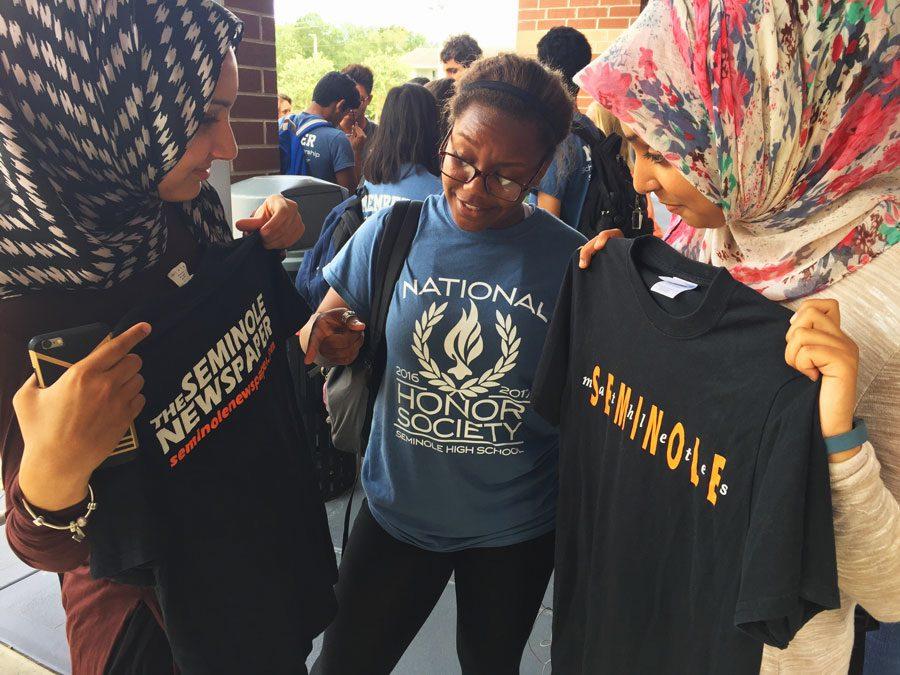COLLEGES NOT AS IMPRESSED WITH CLUBS AS BELIEVED
October 10, 2016
As college application season approaches, many seniors find themselves in a scramble to put more clubs on their resumes in an attempt to be the perfectly “well-rounded” applicant. However, some suggest that being in a multitude of clubs is not necessarily the key to college acceptance.
For example, honors societies are popular among students because of their impression of academic excellence. Seminole High School offers several honors societies, such as National (NHS), Science, History (Rho Kappa) and French. However, students have begun to question if joining these societies truly sets them apart in their college applications.
“On college applications, being a part of National Honors Society simply says that [the student] is committed and they go out of their way to show up and shine. Even though it’s a really big club, you can still stand out by being an active member, and also you’re associated with the right group of people,” said Iffat Nawsheen, officer of NHS.
In fact, most colleges value “quality over quantity” and are more likely to accept a student who is committed to a few clubs in officer positions, rather than a student who is in a many clubs with no sign of actual dedication.
Guidance counselor Ms. Robin Thompson said, “Students should be involved in something they have a deep passion for [and] do something beyond the norm.”
Joining clubs is unarguably an important aspect of a student’s high school experience, but joining any and every club in an attempt to appeal to colleges is not the best use of a student’s free time. Instead of joining all extracurricular activities, students should join clubs they are genuinely interested in and excel in them by gaining leadership roles. According to one of the Deans of Admission for Vanderbilt University, due to the increasing competition in college admissions, a student should try their best to stand out from their peers by starting a club or actively volunteering in their community.
Guidance counselor Ms. Leslie Buchanan said, “Students shouldn’t join a certain club just because they want to impress colleges. They should focus their after-school activities around their major or the field they want to go into in the future. Be passionate about what you do.”
On the other hand, it is not recommended for students to focus all their free time committed to one activity. Being involved in diverse activities such as a combination of sports, student government, and community service can show that a student is well-rounded.
This raises concerns among students about whether or not certain clubs are more impressive to universities than others. In reality, being a part of one type of organization over another does not affect college acceptance unless the organizations pertain to the field students are going into. For example, being an athlete does not hold more weight on college applications than being a part of theater; however, this can depend on the program within the college one is applying to.
Joining several organizations in hopes of impressing colleges is not as appealing to colleges as taking a genuine interest in a select few clubs. Each student’s high school experience is different and college admissions boards want to see this uniqueness reflected on their applications.



















